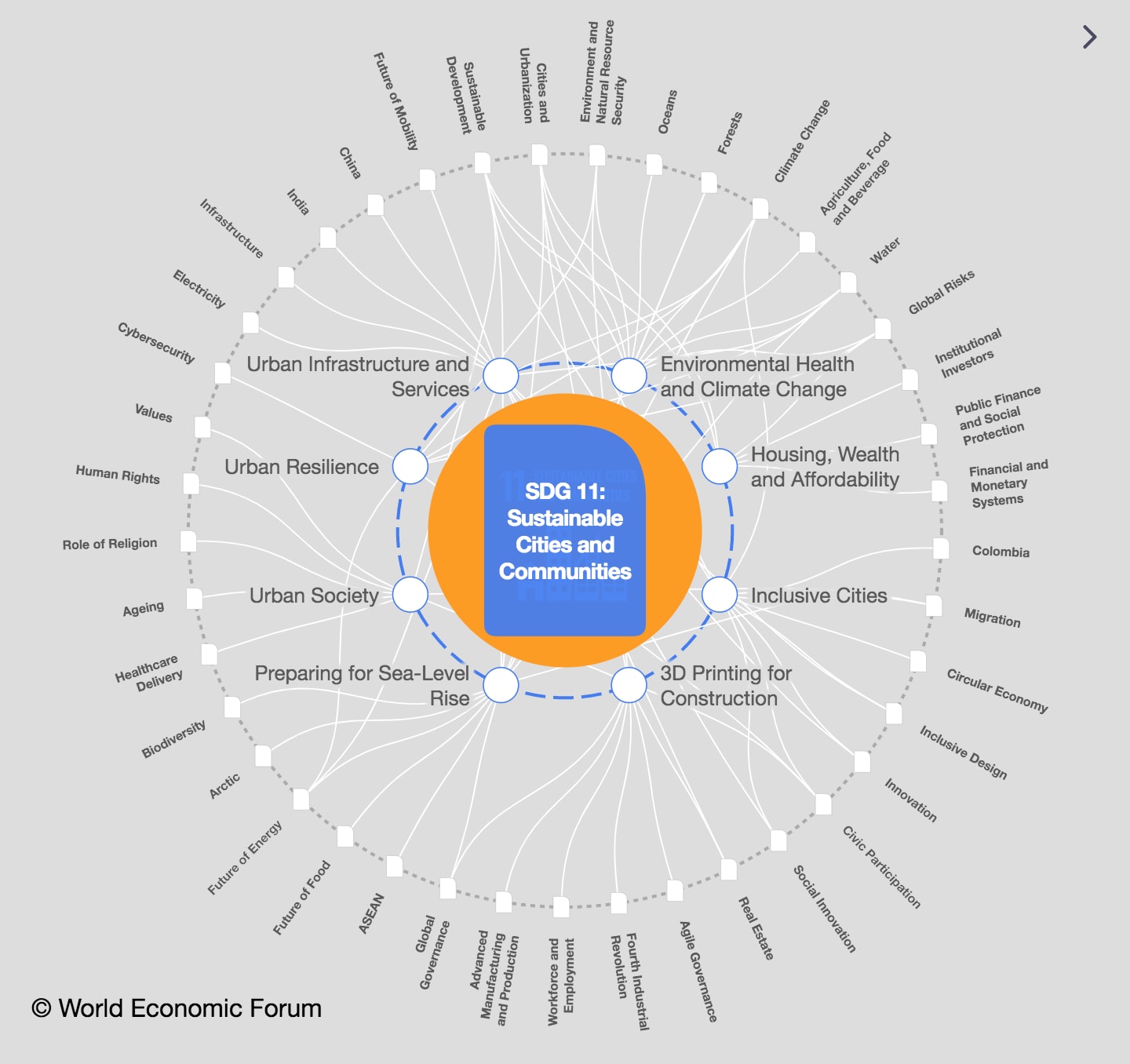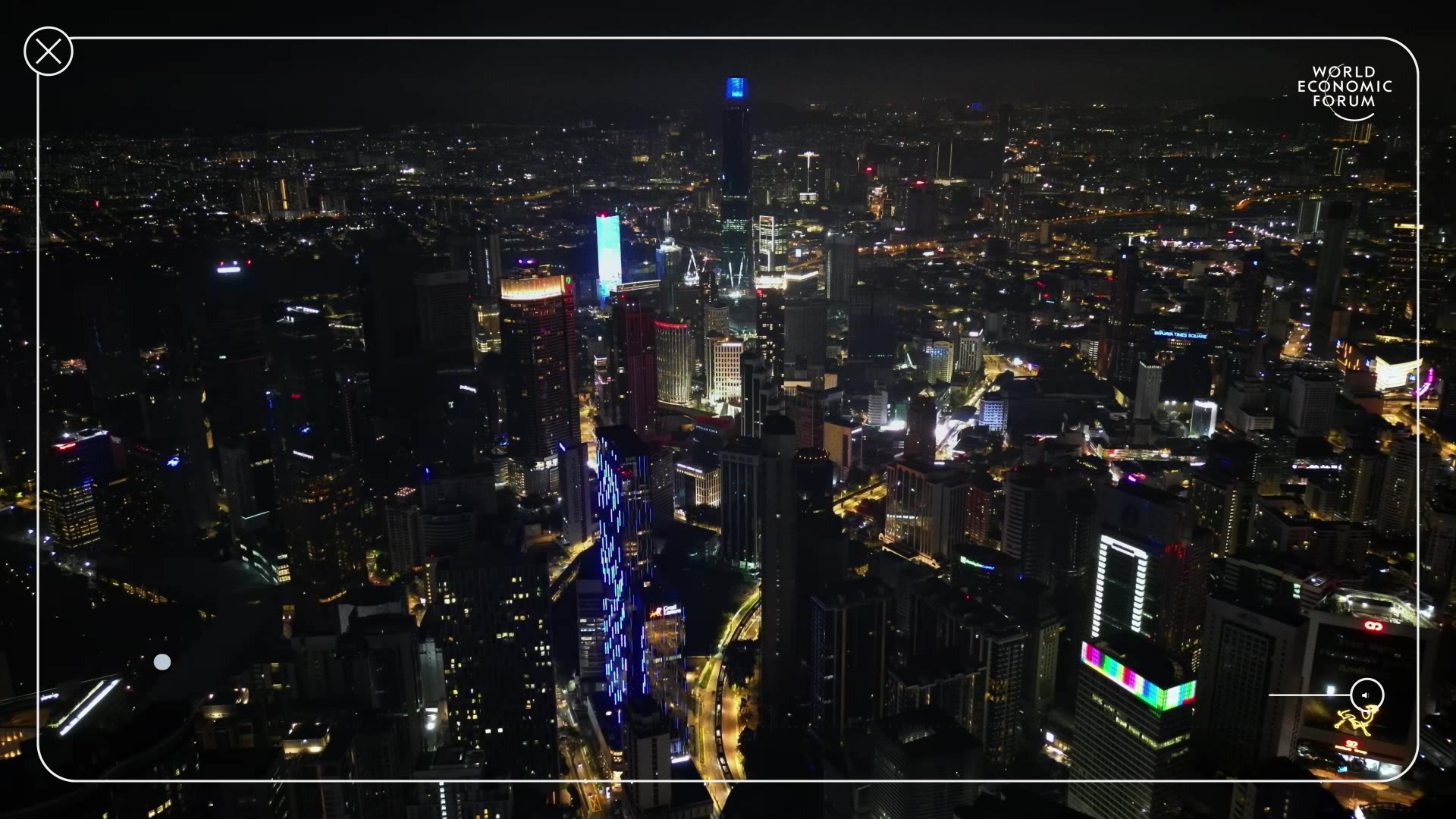COVID-19: The cities leading a greener and fairer recovery

Mayors of the world's leading cities, including the mayor of Milan, are joining forces for a post-COVID-19 recovery Image: REUTERS/Alessandro Garofalo

Get involved with our crowdsourced digital platform to deliver impact at scale
Stay up to date:
SDG 11: Sustainable Cities and Communities
- COVID-19 has been catastrophic but offers the chance to transform the world's cities into more environmentally friendly and equitable places;
- With the right investments in climate action, cities can not only cut 90% of emissions but also create 87 million jobs by 2030;
- The C40 Global Mayors COVID-19 Recovery Task Force brings together mayors from around the world to create a plan for a green and just recovery.
The COVID-19 pandemic has caused immense suffering, thrown the global economy into upheaval and brought hardship to so many, including the elderly, working families and the most vulnerable in our communities. In the wake of this catastrophe, however, we have a chance to transform the world's great cities and forge a new normal that benefits all people and addresses the even greater threat of climate breakdown. We must not only treat the symptoms of global destabilization, but also prepare for future shocks and address deep, systemic ills that existed long before COVID-19.
Many have called for a green recovery; some have called for one that reduces inequality. As the Mayor of Milan, I have been clear that any recovery in my city, in Italy and for Europe, must be rooted in these principles of equity and climate action. I am proud to know that my fellow mayors around the world share this vision and we are delivering.
Mayors can mobilize resources and policies to make cities economic engines for the recovery. With the right investments in climate action, cities can not only cut 90% of our emissions but also create 87 million jobs by 2030, and yield an economic return of $24 trillion by 2050 in cost savings alone.
We have often said that cities are where the future happens first. Right now, we have the opportunity to ask ourselves: what kind of future do we want?
To answer this question, Los Angeles Mayor and C40 Chair Eric Garcetti and I established the C40 Global Mayors COVID-19 Recovery Task Force, bringing together mayors from around the world to create a plan for a green and just recovery. We envision a swift and strong recovery based on the principles of a Global Green New Deal and are committed to taking the concrete action necessary to achieve this vision.
First, we will lead in building a just transition to an inclusive economy, founded on the swift creation of new and good green jobs, the training and upskilling of workers and support for all essential workers. Already, the city of Medellín has reactivated 980,000 jobs using digital technology to support a safe reopening and Los Angeles has established a programme to provide vocational training for more than 1,400 janitors in both COVID-19 prevention and sustainability practices.
Meanwhile, we will continue to drive greater resilience and equity throughout our cities and society. By providing fundamental public services for all, like delivering safe mass transit and access to clean water, food, sanitation and affordable, healthy housing, we will ensure the foundation for a fair society and strong economy that can safely weather future shocks. Mayors are uniquely equipped to meet this challenge: during lockdown in Milan, for instance, our centralized food-aid system provided help to more than 20,000 citizens in need; while Lisbon is offering landlords long-term, stable incomes to turn vacant short-term lets into “safe rent” homes for key workers.
Finally, we will lead in making cities safer and healthier places. We will create “15-minute cities”, where residents can meet their needs via a short walk or bicycle ride. We will permanently reallocate road space to pedestrians and cyclists. We will invest in nature-based solutions, like parks, green roofs and permeable pavements, in order to reduce the risks of extreme heat, drought and flooding.
By giving public space back to people and nature, reclaiming our streets and guaranteeing clean air, our cities become better, healthier and more sustainable places to live. In Milan, we are already safely reopening street markets, creating 35 kilometres of new bike lanes and pedestrianizing several school streets. Meanwhile, the city of Freetown in Sierra Leone will plant one million trees in the next year alone.
As mayors, we are powerful, but we cannot achieve a green and just recovery alone. We call on national governments and international and regional institutions to collaborate with us to build a more inclusive future for all.
We need to ensure all stimulus packages, corporate aid and recovery funds prioritize climate-resilient industries and infrastructure. Furthermore, these investments should directly address the root causes of long-standing inequalities and ongoing racial discrimination.
National governments should also directly support cities by investing in, subsidizing and supporting affordable zero-emission mass transit and renewable energy, helping cities protect the heightened air quality seen during the pandemic and creating jobs.
As a cornerstone of the COVID-19 recovery, C40 mayors demand that national governments must end all public fossil fuel investments and subsidies and move decisively away from polluting carbon industries toward a low-carbon future.
As leaders of the world’s largest and most influential cities, we are committed to doing everything in our power to deliver the future we want. Today’s investments will shape tomorrow’s cities – let us make sure they are healthy, prosperous and safe places for everybody.
Don't miss any update on this topic
Create a free account and access your personalized content collection with our latest publications and analyses.
License and Republishing
World Economic Forum articles may be republished in accordance with the Creative Commons Attribution-NonCommercial-NoDerivatives 4.0 International Public License, and in accordance with our Terms of Use.
The views expressed in this article are those of the author alone and not the World Economic Forum.
Related topics:
The Agenda Weekly
A weekly update of the most important issues driving the global agenda
You can unsubscribe at any time using the link in our emails. For more details, review our privacy policy.
More on Urban TransformationSee all
Lisa Chamberlain
April 25, 2024
Victoria Masterson
April 17, 2024
Fatemeh Aminpour, Ilan Katz and Jennifer Skattebol
April 15, 2024
Victoria Masterson
April 12, 2024








